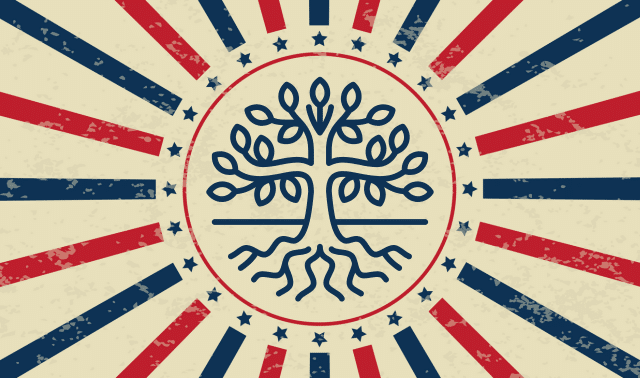Sign up for the Family Tree Newsletter! Plus, you’ll receive our 10 Essential Genealogy Research Forms PDF as a special thank you.
Get Your Free Genealogy Forms
"*" indicates required fields
Another window on life—and strife—in the American West during the Civil War years is opening with a Missouri State Archives project. Facilitated by a $330,619 grant from the National Endowment for the Humanities (NEH) last year, the project makes St. Louis court cases dating from 1861 to 1868 accessible to the public—just in time for the Civil War sesquicentennial in 2011.
The 230,000-plus Civil War-era court documents include divorces, lawsuits, civil filings and minor squabbles among neighbors, providing researchers with valuable insight into daily life as the country navigated the treacherous ground of Civil War and Reconstruction. They offer a unique view into the lives of women and African-Americans, who are under-represented in many historical records but may appear as witnesses or parties to court cases.
“It’s not just about St. Louis,” says Missouri state archivist John Dougan. “It’s about the western theater of the Civil War.” The project encompasses disputes as far away as Texas, New Orleans and the upper region of the Missouri River.
The completeness of the series makes it unique, explains John Korasick, administrative archivist in
the local records department of the Missouri State Archives. “St. Louis was the administrative center for Missouri and the Mississippi River Valley during the Civil War. A lot of cases found their way to St. Louis because of trade on the rivers.” In addition, the courts there stayed open during the war, even when the area was in Union hands. “In other counties, [because of] the fighting, they just had to close down their administrative functions,” Korasick says.
A significant portion of suits filed after the fighting ended stem from events during the war years. “There are a number of divorce cases [related to] infidelity and other issues that occurred during the Civil War,” Dougan says. “It gives a great window into all these everyday individual lives.”
And not-so-everyday lives. One of Korasick’s favorite cases deals with the fallout from a July 1865 fire that devastated circus mastermind P.T. Barnum’s American Museum in New York City. The ringmaster was insured for far less than the estimated $400,000 in damages the conflagration caused. St. Louis, which had become a hub for insurance in the United States, served as center stage for Barnum’s lawsuit against the Occidental Insurance Co.
Processing the more than 11,000 case files—each one trifolded and many coated with coal dust and dirt—was no easy task. Michael Everman, the archivist who oversaw the work of four professional archivists, describes the process: “They unfolded, cleaned, flattened and separated the pages so they could be imaged by microfilm or digital cameras,” he says. “It really took some wrestling to get them flat. Conservators treated thousands of pages for us.”
Conservators placed especially fragile documents in polyester sleeves for storage. Papers needing repair were sent to the state archives’ conservation lab in Jefferson City, Mo. Finally, files were arranged by year, term of court, and case number.
The civil court cases reflect people’s relationships, explains Everman, and workers needed to understand each one in order to create indexes. Slavery issues arise throughout the documents, in such forms as real estate litigation, African-American soldier disputes and slaves’ marriages.
A separate effort, the St. Louis Freedom Suits Legal Encoding Project at Washington University Libraries, focuses on slave records. Researchers are transcribing about 300 “freedom suits,” in which slaves sued their slaveholders for their freedom. Dred Scott’s groundbreaking case, whose eventual outcome in the US Supreme Court set the stage for the Civil War, is among them. “The documents themselves will be searchable,” says Andrew Rouner, director of the university’s digital library. “We will also add new material, including roughly 20 St. Louis city directories.”
That effort builds on the St. Louis Circuit Court Historical Records Project to digitize pre-1875 records encompassing the Lewis and Clark expedition, American Indian relations, the fur trade and more. (To learn more about this project, visit <www.sos.mo.gov/archives/projects/stlcircuitcourt.asp>.)
Digital access to original documents also remains the focus of the Civil War-era records project, now in its filming stages. Ambitiously, the office hopes to have the index and images online by the war’s sesquicentennial. Workers in the St. Louis office of the Missouri State Archives will make photocopies for researchers now; call (314) 588-1746 for more information.
Ultimately, these projects will preserve St. Louis court records from 1787 to 1875. “If you find your folks, you might find the gossip nobody wants to talk about,” Korasick says. “The really good genealogists out there, they want to put the leaves and the fruit on that family tree.”
From the August 2010 Family Tree Magazine




